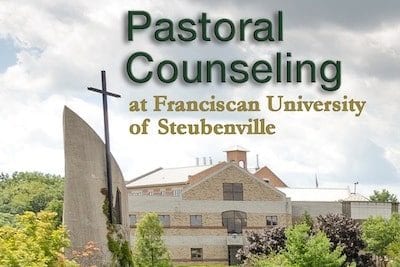Although there are many different definitions of what pastoral counseling is, I notice several common themes which writers have drawn upon. The term “integration” appears a lot in reference to guiding a client towards physical, mental and spiritual well-being. For Christian clients whose faith is important to them, knowing that pastoral counselors share their faith helps develop trust, rapport and accountability. The pastoral counselor offers a holistic perspective in considering the whole person, the mystery of that person and their innate worth as a spiritual/ religious person, which more secular therapists are often reluctant to do. The pastoral counselor does not neglect the spiritual/religious aspect of their client but rather sees this as a strength and incorporates this into the therapeutic process. Other terms that appear a lot in descriptions of what pastoral counseling is include “healing” and “reconciling”. There are some wounds which psychology and science simply cannot heal alone; pastoral counseling allows space for God to reach the dark places of a client’s soul, transform them and give meaning to their suffering. Other common terms reflected in the literature are “relationship” and “community”. Pastoral counselors seek to help their clients develop healthy relationships with God and others which can be modeled in the pastoral, therapeutic relationship. The presence of a religious community can offer support to clients and is key to the life and expression of faith in Judeo-Christian culture. The pastoral counselor who shares in this community is thus held accountable to the client.
Considering these themes of integration, healing, reconciling, relationship and community, it would appear that the identity of a pastoral counselor is a religious/spiritual member of a community who integrates both their psychological and theological training. Thus pastoral counseling has been described as “bicultural” (Snodgrass) and distinguishes itself from other kinds of counseling in that it offers the additional specialty of providing therapy for psycho-spiritual matters. As Benner states, pastoral counseling is unique in the training, role, context, goals and resources of the pastoral counselor. This gives advantages such as a holistic perspective, trust from the client, community resources and a less restricted therapeutic relationship. Pastoral counseling differs from spiritual direction which, according to Culligan, is primarily concerned with deepening a parishioner’s relationship with God through prayer. Pastoral counseling is concerned with this dimension too but is similarly concerned with human relationships and other aspects of a client’s life that may affect their overall well-being. And at the other end of the spectrum there are many secular mental health professionals who are rarely trained to acknowledge the spiritual/ religious needs of a client much less give attention to them. So in sharing the same faith community, pastoral counselors add a layer of accountability to their role in the mental health field.
As a co-pilgrim, the pastoral counselor could adopt an Ignatian spirituality, as suggested by Yevenes, in approaching the client with a spirit of love and a holistic disposition of being non-judgmental. He also points out the parallel modes of understanding with pastoral counseling; to find God in all things and in all persons. The way of intervention can provide relevant wisdom for clients; in the annotations of the spiritual exercises, the use of imagination, discernment and criteria for one’s mission. Ignatius also highlights the importance of a healthy integration between trust in God’s grace and personal effort. From a Catholic perspective, pastoral counseling can utilize so many rich traditions and church resources for treatment. This would include consideration of the sacraments and the benefits of increasing Mass attendance, Confession and adoration. Spiritual retreats can be life-changing for clients who rarely get to sit peacefully in the still small voice of God amid the noisy, bustling world of today. Catholic clients and therapists can draw upon over four thousand years of biblical scripture, theology, spiritual writings of the saints, liturgy and other uplifting texts. This could take the form of agreed homework as part of treatment and give insight into difficult topics. The divinely inspired words of past Christians could provide not only comfort for clients but a profound metaphorical relevance to issues discussed in therapy. Reading messages of hope may shift the focus from subjective pessimism to looking outside of ourselves and becoming more involved in charitable work.
“Caritas” or “charity” is a central part of church teaching and doctrine. Charitable activities that would help clients reconnect with their community could be volunteering in a soup kitchen, running animal rescue centers, working with the homeless or visiting the elderly who often find themselves lonely or isolated. Even praying for others is an act of charity and so incorporating prayer into the therapeutic framework could serve the twofold purpose of developing the client’s interior spiritual life as well as a sense of well-being for carrying out acts of mercy. Prayer has been reported to have many physiological health benefits according to the empirical findings of various studies. Some prayers that are Catholic in nature would be the rosary, chaplets like the Divine Mercy, the Divine Office, prayers to different angels and saints, the Stations of the Cross as well as personal prayer, Lectio Divina and contemplation. In conjunction with secular mental health practice, the possibilities are endless and that’s what makes pastoral counseling so wonderful.






